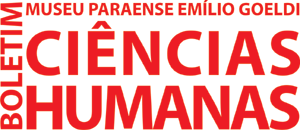Abstract
Even though its recent notoriety is associated with politics, fake news have effects also on science, bringing challenges and threats both to the understanding and social appropriation of knowledge and to confidence in scientists and democratic institutions. Disseminated mainly by digital platforms and messaging apps, fake news potentially reaches all connected people. Young people, in particular, whose trajectories are influenced by the digital world, need to deal with it when making choices about what to believe. Based on Kahan’s proposal for cultural cognition (Kahan, 2008, 2010, 2015), this article presents the results of five focus groups conducted with young people living in Belém, Pará. The results demonstrate, among others, insecurity and difficulty in identifying what is true and who to trust when dealing with news that circulates on the internet. They also show the importance of offline networks for checking information, that the source of information is an important criteria for credibility and a predisposition to share content that corroborates points of view. In general, the data contribute to a better understanding of the topic and open possibilities for future research on disinformation.
Keywords
Fake news; Disinformation; Young people; Social network; Public perception of science
